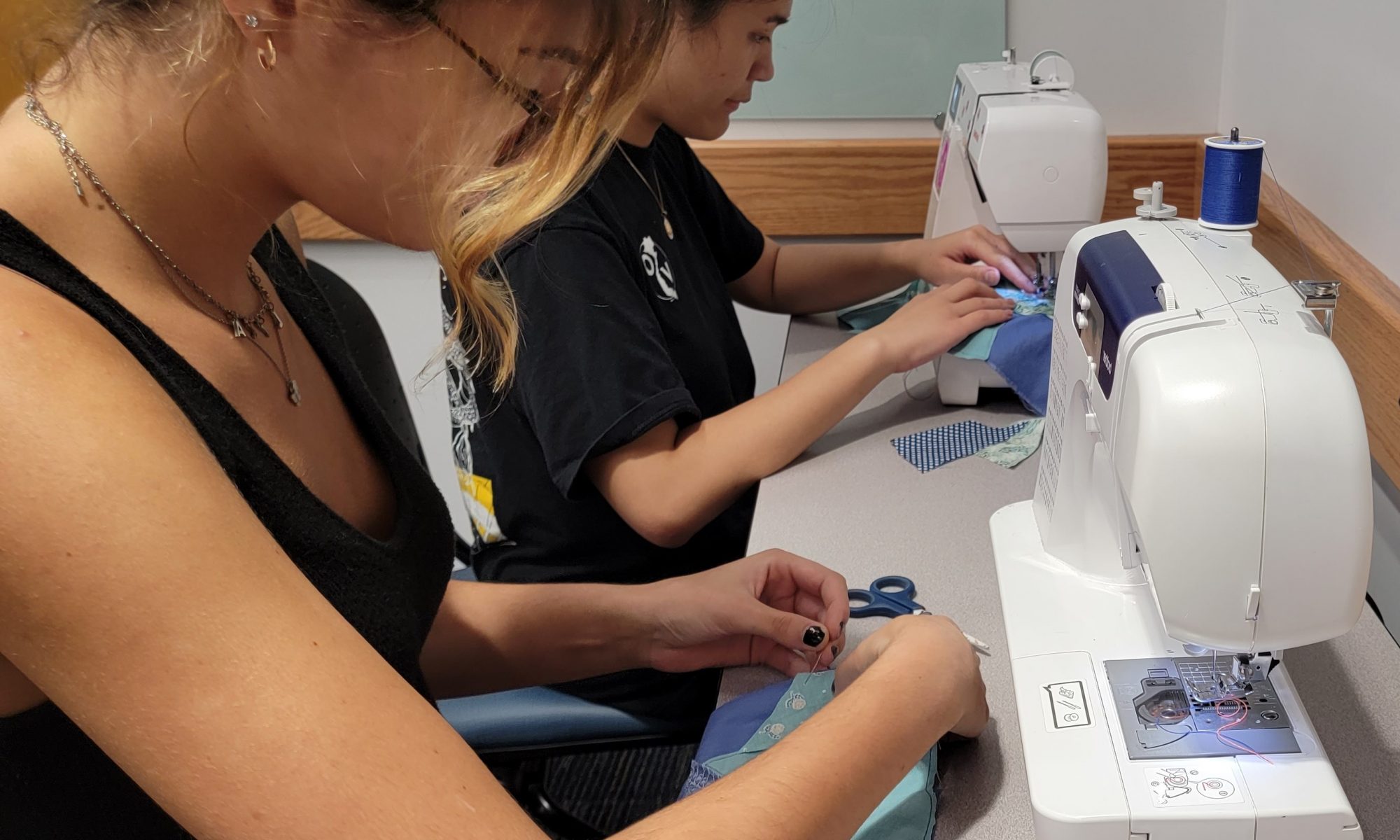By Cristal George and Tammy Lee
Pellets of sweat are dripping down her face. Her lips tremble as tears slowly roll down her cheeks. Hearing the tick and clash of the sewing machine against the fabric, she cannot breathe properly. She inhales dangerous chemicals and fabric dust and is paid below the United States minimum wage.
This working environment is the unfortunate reality for many garment workers in countries including India, China, and Bangladesh. Due to a lack of government regulation, workers are poorly paid and routinely work over eight hours a day. Many of them are children.
With fast fashion on the rise, most students are unaware of the effort that goes into creating clothes. They are used to scrolling on a device until an item catches their eye, adding it to an electronic cart, and clicking “Checkout.” Behind the glitz of fashion magazines and enthusiasm of influencers, though, this type of consumerism has consequences. It supports unethical practices and detrimental environmental problems including pollution and increased waste. Knowing more about the steps in clothing construction and the marketing process could help students make decisions that can mitigate the industry’s humanitarian and environmental harms.
In Dr. Melissa Mellon’s new Quest 2 class, Changing Clothes, she focuses on finding solutions to sustainability problems in the fashion industry. Part of the general education curriculum, UF Quest 2 courses examine questions through the physical, biological, or social and behavioral sciences. Changing Clothes uses the social and behavioral sciences to examine the consumer attitudes, beliefs, and practices associated with shopping for clothes.
Seeing the existing offerings for Quest 2, Mellon thought about what she would have liked as an undergraduate. She was inspired to create this course through an interest in sustainability combined with memories of one grandmother personally tailoring clothes and another grandmother making quilts. At the same time, her colleague, Dr. Jennifer Coenen, was reviving a sewing hobby. As Mellon tooled over the class, the two shared ideas for class assignments and readings.
First taught in Spring 2022, Changing Clothes asks how consumers can advocate for sustainable changes in the fashion industry. For their research projects, students chose a particular environmental, humanitarian, or economic concern. Then, they examined how consumers’ knowledge, beliefs, and practices confront this problem. Some issues students explored included consumers’ knowledge of chemical pollution caused by fabric dying or microplastic waste and consumers’ clothing disposal practices. In the process, they found active conversations about clothing and sustainability in fashion and other popular magazines but a lack of study in academic writing.
Preparing for the Fall 2022 course, Mellon knew she had developed the intellectual parts of the course effectively but felt she needed to give students more perspective. To do so, she added an experiential learning component that introduced students to some basics of sewing. For a week’s worth of classes Mellon, with help from Coenen, carted five sewing machines to class. They showed students how to use a sewing machine and hand stitching to create small items including an identification card holder and a potholder. During these days, her college classroom was filled with colorful fabric scraps, whirring sewing machines, and loose threads scattered everywhere.
When recounting students’ sewing experiences, Mellon remembers most students enjoyed the process overall. For many, it was a “magical experience” when they saw their chosen fabric pieces come together into their intended projects. Because the fabrics came from discarded clothing, students learned a new, simple method to repurpose their own clothing.
But the takeaways from the sewing days were not all enjoyable. Students realized the complexity of the sewing process and how tiring it might become. Mellon said, “In the context of the class, these hands-on sewing days showed students how the process feels—the repetition and how it wears on the body over time.”
Sewing in a college-level course may sound odd; however, Mellon successfully used it to emphasize important lessons for her students. In the end, they recognized that the industrialized and global nature of the fashion industry carries detrimental consequences. Equally important, they examined the role of consumer agency in choosing what to buy and how to advocate for sustainable changes. Finally, students picked up practical life-lessons including rudimentary sewing skills and advice for repurposing old clothing.
For anyone interested in learning more about human behavior relating to sustainability in the fashion industry, consult the Quest Classes website—Changing Clothes (Quest 2) is scheduled for Spring 2024.
About Cristal George: Cristal George is majoring in microbiology and cell science. She has played piano since she was four, and outside of school-related activities, she enjoys serving her church family, Greenhouse Church. She plans to graduate in 2025 and go on to dental school where she will study general and cosmetic dentistry.
About Tammy Lee: Tammy Lee (she/her) is an undergraduate majoring in food science and minoring in teaching. Her interests include creating cute digital art and decorating fruit cakes. After graduating in 2025, she would love to work as a research and development scientist formulating products for a food and beverage company.


